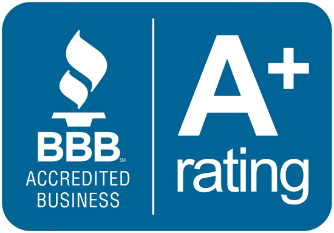Every year, 4 million people die due to illness or disease that can be attributed to polluted indoor air, according to the World Health Organization (WHO). Nearly half of child pneumonia deaths are the result of inhaled fine particulate matter from household pollution.
This is a concerning statistic, especially with the magnifying glass that has been placed on respiratory health due to the coronavirus and the disease it causes, COVID-19. Can you take steps right now to reduce your indoor air pollution and decrease your chances of the harmful effects of poor indoor air quality? Absolutely. Here’s what you need to know.
What Causes Indoor Air Pollution?

There are many things that are commonly found or used in a home that can contribute to poor indoor air quality. This includes but isn’t limited to:
-
Tobacco smoke. First and second-hand smoke indoors is a common pollutant in today’s homes.
-
Although outlawed for use in home construction in the late 1980s, asbestos can still be found in ceiling and floor tiles, insulation, paint, and other materials in holder homes.
-
Like asbestos, the use of formaldehyde in construction has been banned, but it can still be found in materials like floor sealants and paints.
-
Other toxic chemicals. Commonly used household items like air fresheners, candles, and wax melts can diffuse chemicals and phthalates into the air, which can compromise your respiratory health.
-
Mold and mildew. Both ducted and ductless HVAC systems can harbor mold, mildew, and dust when not properly maintained. Dirt and other particles get circulated throughout your home any time you turn your heating or cooling on.
The Dangers of Poor Indoor Air Quality
 The WHO also reports that home air pollution causes serious diseases like chronic obstructive pulmonary disease (COPD), ischaemic heart disease, stroke, and lung cancer. It can also be considered a strongly contributing factor for many cases of pneumonia, cataracts, tuberculosis, laryngeal and nasopharyngeal cancers, and low birth weight.
The WHO also reports that home air pollution causes serious diseases like chronic obstructive pulmonary disease (COPD), ischaemic heart disease, stroke, and lung cancer. It can also be considered a strongly contributing factor for many cases of pneumonia, cataracts, tuberculosis, laryngeal and nasopharyngeal cancers, and low birth weight.
How to Quickly Reduce Indoor Air Pollution
There are several steps you can take to reduce your indoor air pollution, even right now:
Stop Burning Candles
Candles with toxic paraffin wax should never be burned in the home. Better yet, avoid candles altogether. Paraffin and some other types of waxes create a harmful, potentially carcinogenic soot that gets circulated into your indoor air supply.
Open Your Windows
Need some ventilation right away? Throw open a few of your windows. Even if it’s chilly, you can do a quick “clear out” of your home’s air by opening the windows and doors and putting fans up.
You can place fans backwards in your windows so they pull air from inside your home out, or you can set up one fan to pull fresh air inside the home and another to pull air out, creating a cross breeze that airs out your home in minutes.
Grow Air Purifying Plants
It’s well known that plants are the primary source of Earth’s oxygen. But did you know that some plants -- especially those that are easy to grow indoors -- can remove germs, dust, and other airborne toxins?
Mother-in-law’s tongue releases oxygen at night, making it a great plant for the bedroom. Spider plants battle carbon monoxide, aloe removes formaldehyde vapors, and weeping figs fight xylene and toluene.
Change Your HVAC Filter
Your HVAC filter collects dust, allergens, pet hair, and other pollutants every day. It should be changed regularly to ensure that the air being pulled through the filter isn’t collecting toxins and distributing them throughout your home.
Have Your HVAC System Cleaned
Changing your HVAC system’s filter isn’t the only step you should take to ensure your system isn’t doing more harm than good. Even beyond the filter, your HVAC system can grow mold and mildew that you don’t want to breathe. Just watch this video showing how much more dirt, grime, and pollutants come out of an air source heat pump during a deep cleaning:
Need Help Eliminating Your Indoor Air Pollution? Call N.E.T.R., Inc.
At N.E.T.R., Inc., we understand the dangers that poor indoor air quality can cause, especially for vulnerable populations like newborns, young children, and the elderly. We can help you improve your indoor air quality so you can breathe easier at home.
Contact us today at (781) 933-NETR to learn more or to request a consultation.











